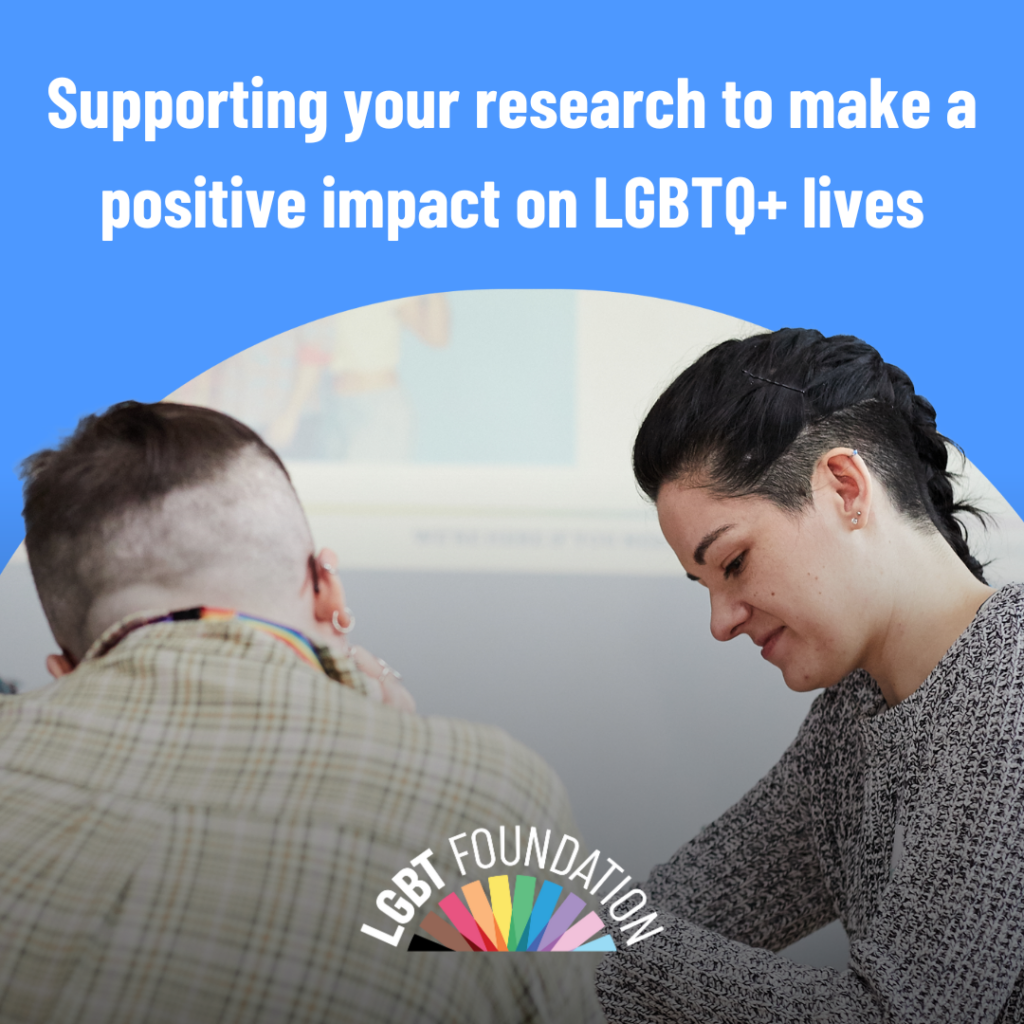
We are happy to support research that provides insights into LGBTQ+ community needs at postgraduate level and above.
Expressions of interest are being invited for a 2025 White Rose College of the Arts and Humanities AHRC Collaborative Doctoral Award (CDA) Studentship being led by York Law School, University of York and the Pride in Ageing programme, LGBT Foundation.
The 40-month “Passing on the Torch” project will address the following key research question:
How can arts-based facilitated intergenerational dialogue promote the transmission of LGBTQ+ experiences, histories, cultural memories and insights and wisdoms about resilience, resistance and activism aimed at addressing legal and social oppressions?
The research will involve mapping relevant legislation across the past 60 years, whilst drawing on an extensive literature review, empirical data collection via arts-based focus groups with single- and cross- generational groups of LGBTQ+ people, analysis of primary data and dissemination via a range of outputs.
More information about the White Rose College of the Arts & Humanities award and the application process can be found here. The deadline for applications is 12 noon on Wednesday 5th March. For more information about this project please contact Dr Sue Westwood (sue.westwood@york.ac.uk) and Lawrence Roberts (Lawrence.Roberts@lgbt.foundation)

You can find out all the information you need to ensure that your research is inclusive and respectful of LGBTQ+ communities. We offer the following options in our work:
There is a great deal of interesting and important research on LGBTQ+ communities being carried out and much of it relies on LGBTQ+ people getting involved and sharing their experiences. If you are LGBTQ+ and would like to have your voice heard by participating in ongoing research, see below for projects you can get involved in.
If you would like to promote your research on our website and social media channels, please contact us by email on research@lgbt.foundation


We at LGBT Foundation are committed to amplifying LGBT voices across everything we do, and this principle is reflected in our approach to conducting research.
Below you can find guidance we have produced on carrying out robust, ethical, and asset-based research with, and within, LGBTQ+ communities; appropriate demographic monitoring guidance to ensure that research language is inclusive; and our guidance on uncovering the hidden histories of LGBTQ+ people in the North-West.



Ethical Guidance produced with the Economic & Social Research Council on how to conduct high-quality, ethical research with LGBTQ+ communities.

Demographic monitoring guidance for sexual orientation and trans status monitoring, to ensure research is inclusive.

An introduction to the archival and printed material deposited in locations across Manchester and the North-West.







